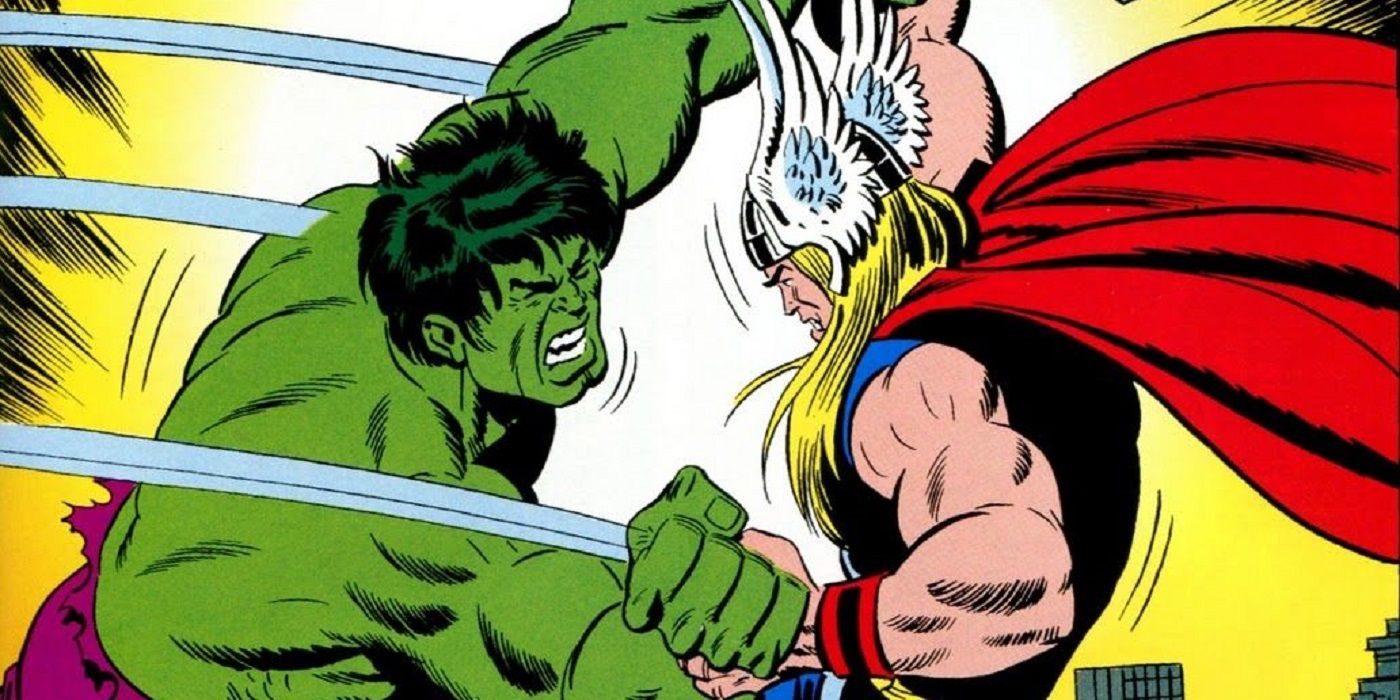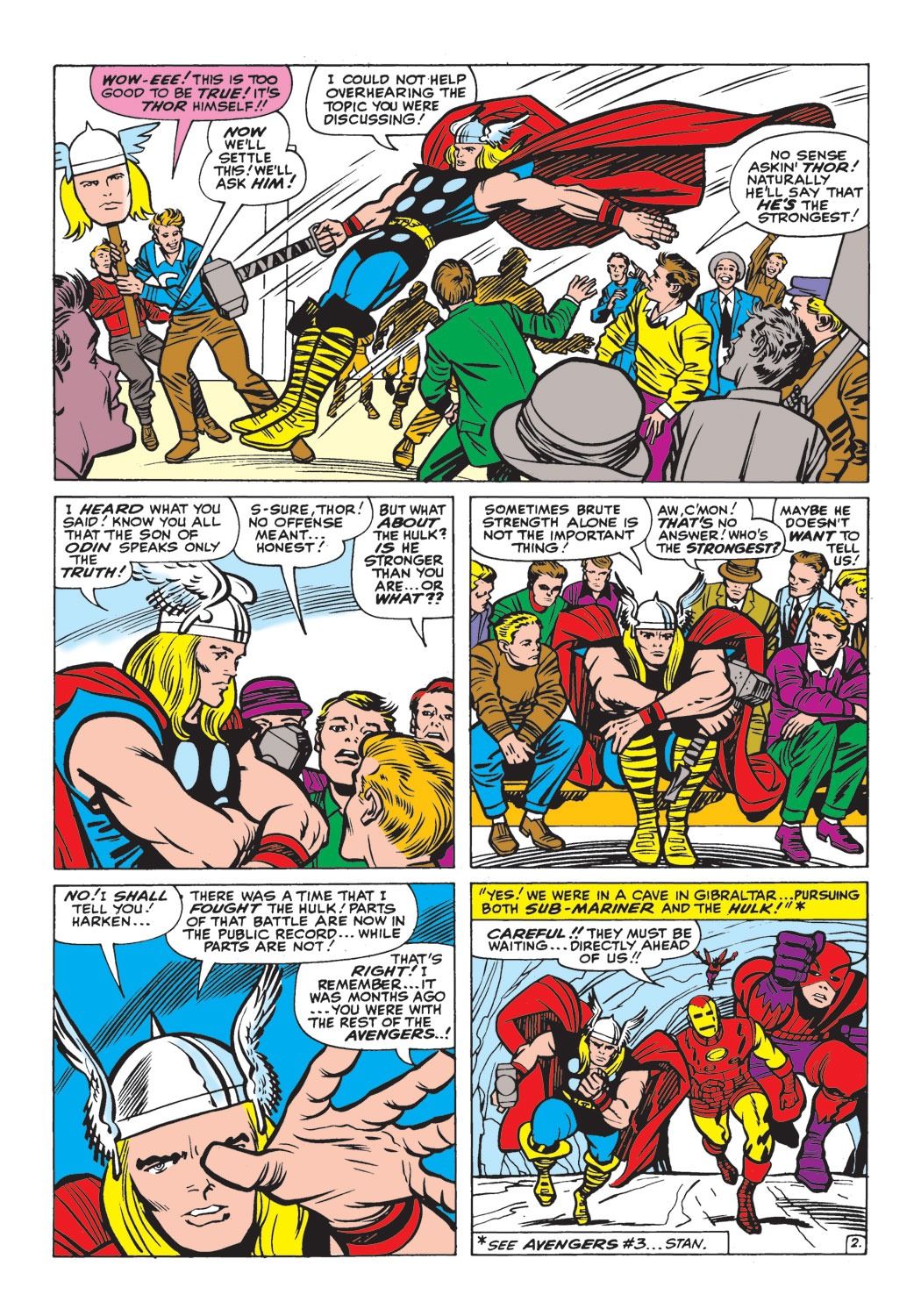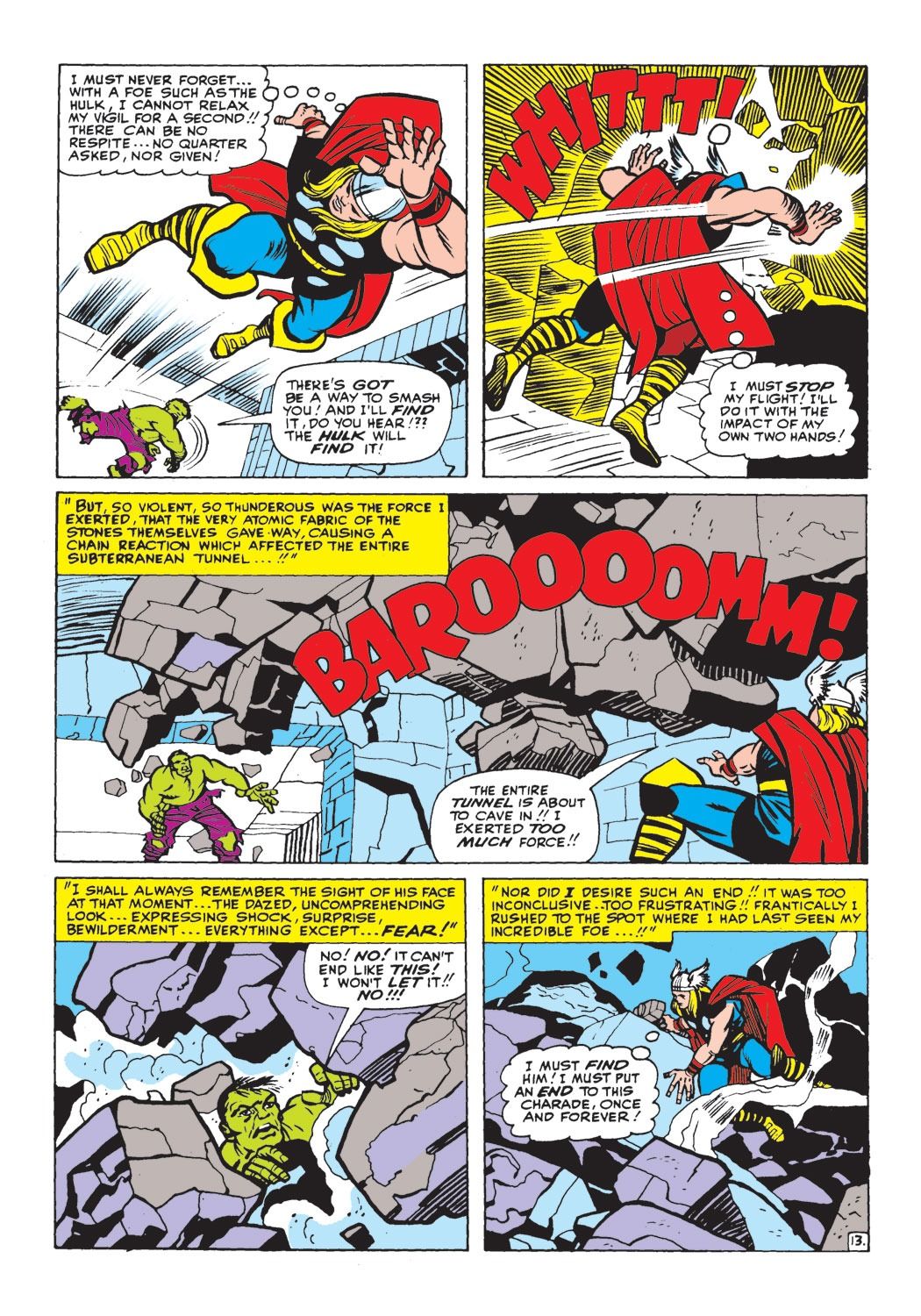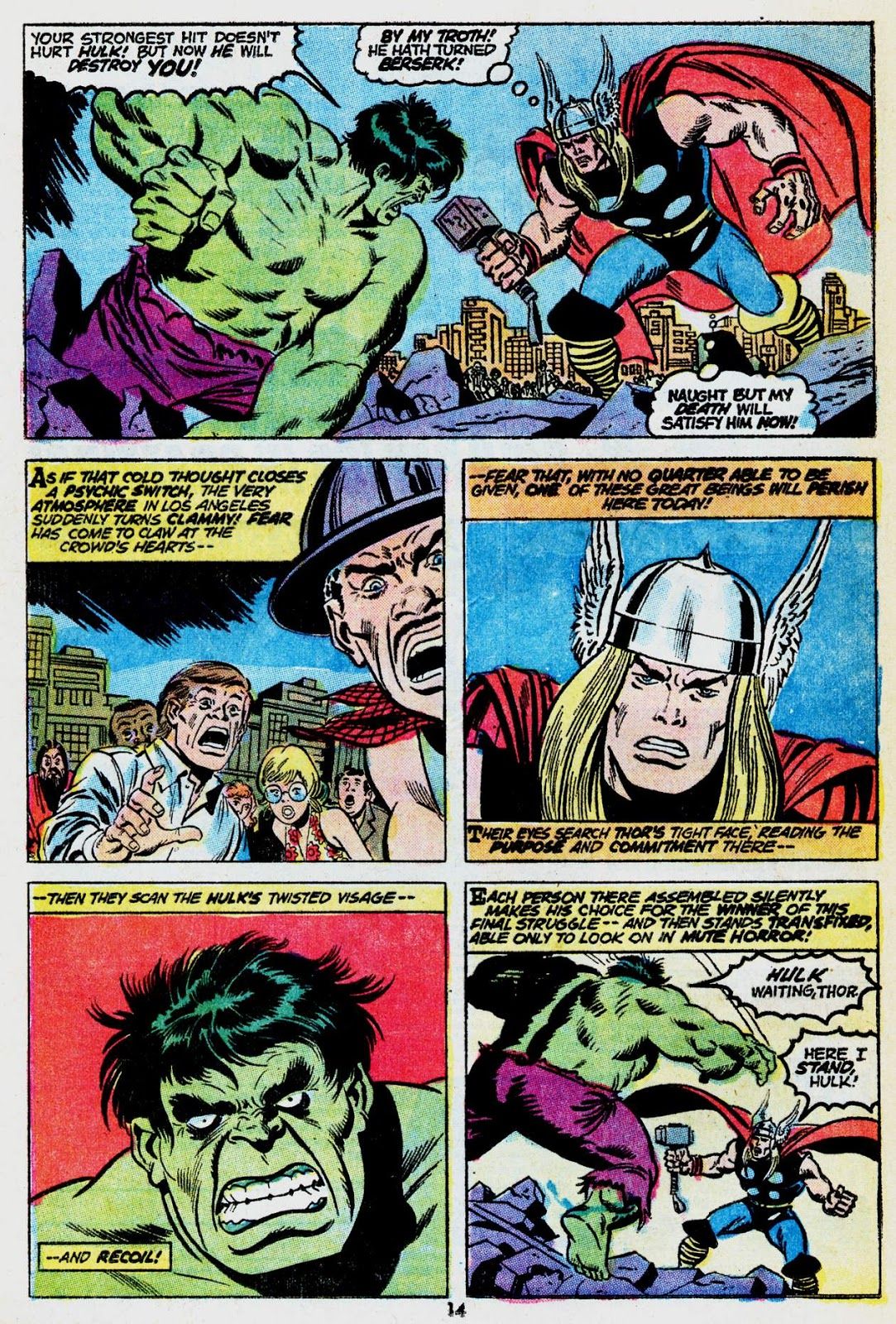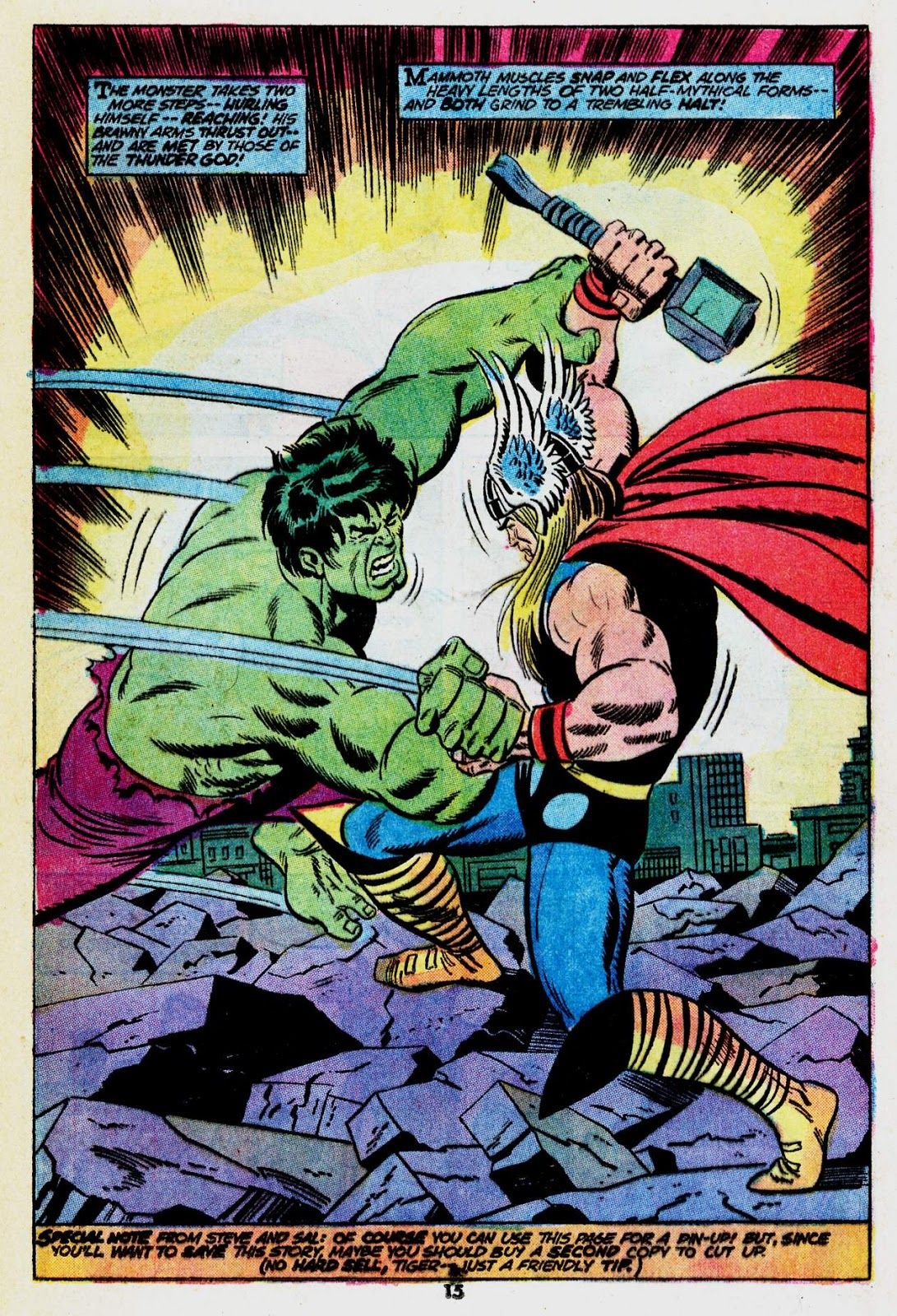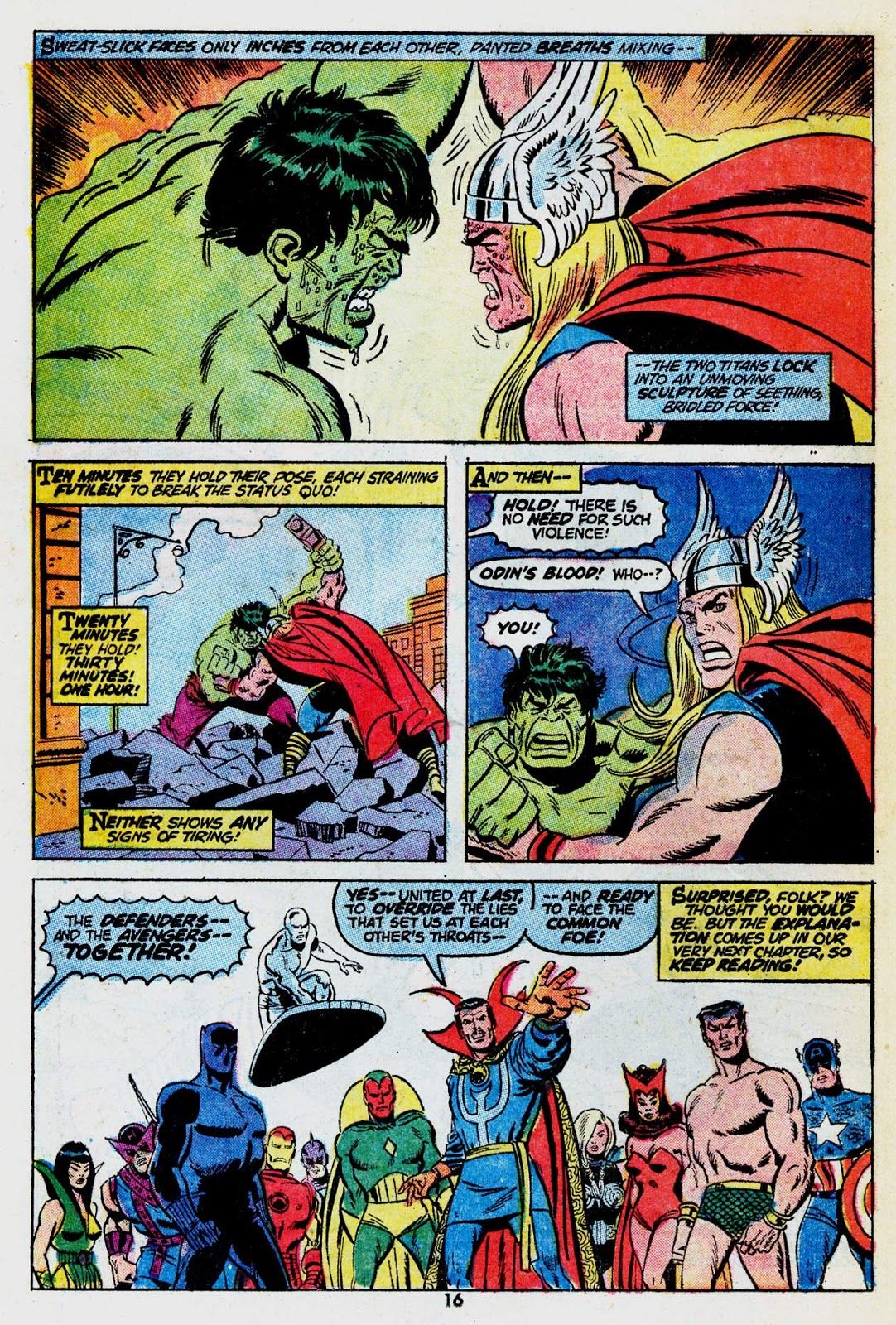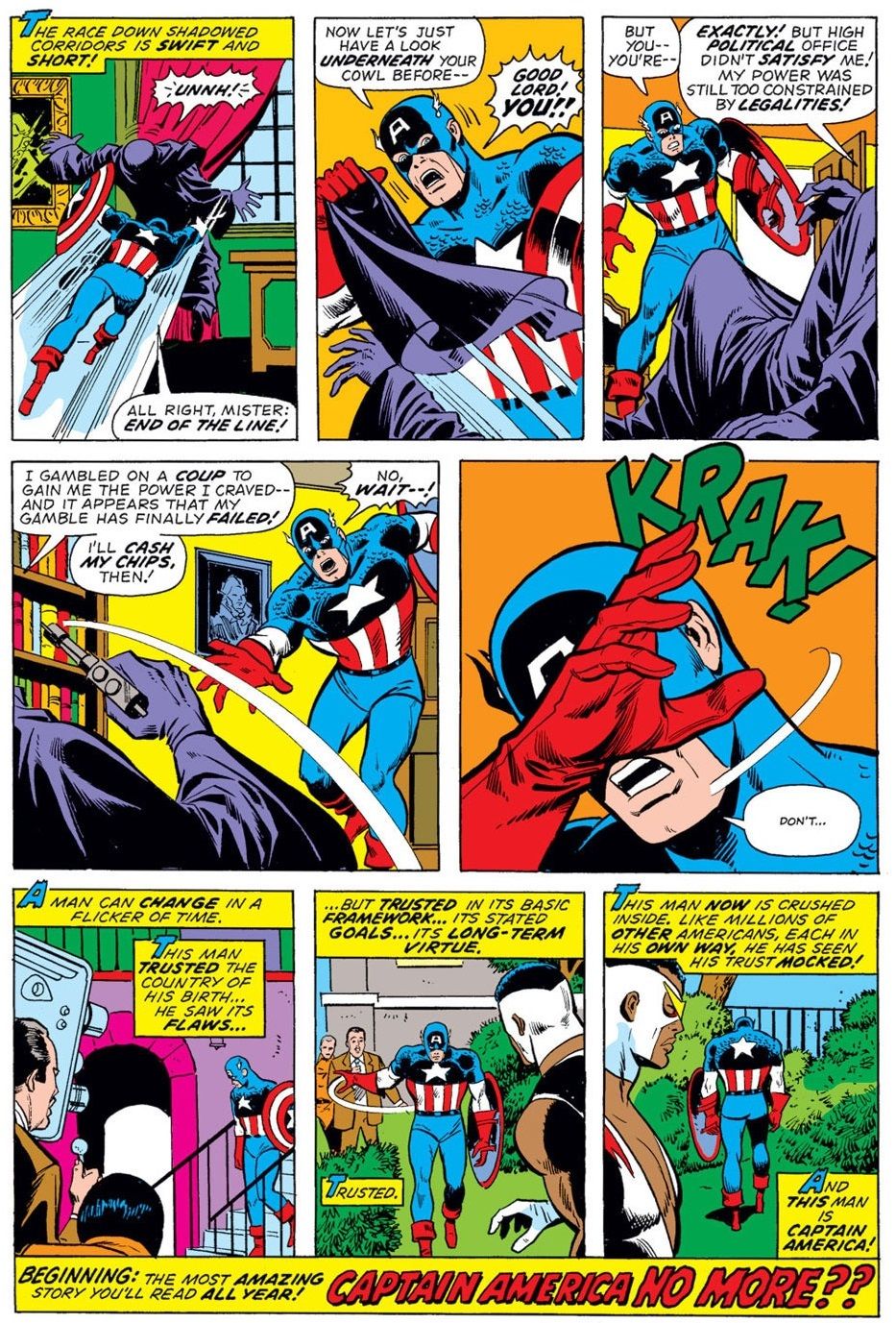Welcome to Comic Book Legends Revealed! This is the seven hundred and thirty-sixth installment where we examine comic book legends and whether they are true or false.
Here is Part 1 of this week's legends.
NOTE: If my Twitter page hits 5,000 followers, I'll do a bonus edition of Comic Book Legends Revealed that week. Great deal, right? So go follow my Twitter page, Brian_Cronin!
COMIC LEGEND:
Marvel dictated the result of the Hulk/Thor fight in Avengers vs. Defenders
STATUS:
False
One of the most interesting aspects of the Marvel Age of Comics is that Stan Lee took the Mort Weisinger fan interaction to the next level, as while Weisinger would include reactions from his readers in the letter columns of the Superman titles (becoming one of the most interactive letter columns in comic book history), Stan Lee took it a step further and began to write comics specifically as responses to fans. One of the most famous early examples of this was Fantastic Four #11, where the team replies to letters from actual fans (sadly, a good deal of the letters to the Fantastic Four at the time were, "Man, why is Invisible Girl even on the team?"). However, let's be frank, when you open things up to the fans, we all know what they really want to talk about - Is Superhero X stronger than Superhero Y?
Lee acknowledged that the fans wanted to know that information, but at the same time, he also was not a fan of giving definitive answers to stuff like that (by the way, when Jim Shooter then burst on to the scene at DC Comics in the mid-1960s when he was still a teenager, one of the things he did for the company was adopt a similar "What are the actual readers interested in?" approach, which led to the classic Superman vs. Flash race, since fans HAD been wondering who was faster for many years).
Journey Into Mystery #112 (by Jack Kirby, Stan Lee and Chic Stone) was a perfect example of this approach, as Kirby and Lee actively depict fans arguing over who would win in a fight, Thor or Hulk.
Thor stops by and decides to explain to the kids that he was wondering the same thing and he then points out an untold story where he and Hulk took a moment to just brawl.
The result was, naturally, basically a tie.
That has led fans to assume that there was some sort of unofficial "rule" at Marvel that you couldn't come up with a winner in a Hulk/Thor fight, which seemed to be borne out when Hulk and Thor fought during the Avengers/Defenders War and, well, ended in a tie...
Reader Jon S. wrote in to ask whether that was, in fact, the case. As it turned out, no, it was all writer Steve Englehart. This is similar to the situation where Englehart noted that he never received any pushback from Marvel when he had the President of the United States revealed as a criminal and kill himself in front of Captain America in the Secret Empire storyline.
Englehart was given pretty free rein here.
He explained as much to Karen Walker in her excellent spotlight on the crossover in TwoMorrows' Back Issue #82:
[T]here were no suggestions. I just thought, these are both - I mean, the Hulk always beats the Thing. If they go at it, we've established that the Thing is not quite as strong as the Hulk. I don't know if even today I could tell whether the Hulk is stronger than Thor or vice versa. So it just occurred to me that maybe I didn't need for that final battle, that was going to lead into everybody getting back together, maybe I didn't need a winner. Maybe I could just leave it with the two of them locked in this eternal immovable object vs. irresistible force situation, until they got interrupted by people going, 'Hey, we don't have to do this.' So I thought, I could certainly stage a big, spectacular battle and one of them could beat the other, but no. Me, personally, I liked the idea that neither one could beat the other, at least within the time frame allotted."
So there ya go!
Check out my latest TV Legends Revealed - Was the TV series 24 originally going to be about the 24 hours leading up to a wedding?

